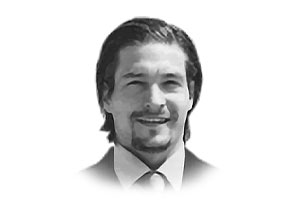The modern vehicle on the global security road
Arab News, February 25th, 2017
The modern vehicle on the global security road

Over the past five decades, the Munich Security Conference (MSC) has established itself as an important international platform for exchanging views on global security. Yet this year’s conference was nothing like those before it. Wolfgang Ischinger, MSC chairman, described it as “the most anticipated” in years, and one with “massive uncertainty.” It seems the global security climate is more volatile now than ever since 1945.
When considering ongoing instability in Syria and the Middle East, the growing involvement and influence of Russia in the region, Brexit, complex US-EU-Russia relations and the rise of far-right populism, it is painfully obvious that the international status quo has been thrown into flux.
For example, even before the conference had begun, German Defense Minister Ursula von der Leyen announced an extensive rearmament of the armed forces in response to US President Donald Trump’s idea to withdraw from NATO if European allies did not issue a significant increase in military budget.
The Munich Security Conference (MSC) has established itself as an important international platform for exchanging views on global security.
— Mark C. Donfried
As the new US administration seemingly drives Germany toward a massive military build-up by committing to the 2 percent target, significant cuts would have to be made in all areas of social spending. It is almost fair to say then that during the MSC this year, Europe realized the US cannot be relied on alone.
Military might — also known as “hard power” — which was exercised intensively in the last century, is not and cannot be the primary, if not the only, tool in achieving global security in the 21st century without causing even greater horrors than humanity witnessed during the two world wars. So what can be?
Cultural diplomacy theories and practices can be the answer to our security question, and must be a growing permanent element used to influence global security. It is defined as “a course of actions, which are based on and utilize the exchange of ideas, values, traditions and other aspects of culture or identity, whether to strengthen relationships, enhance socio-cultural cooperation, promote national interests and beyond.”
It is noteworthy that cultural diplomacy, a form of “soft power,” is still a type of power, in fact a mighty national power as it demonstrates to foreign audiences every characteristic of its culture. Just as importantly, cultural diplomacy can help create an environment in which an action is received by the audience exactly as intended by establishing understanding of foreign cultures.
It has the potential to avoid situations in which an action is perceived in a negative light purely due to lack of cultural awareness and appreciation. In the grander scheme of things, cultural diplomacy functions as a vehicle to aid in interpreting intelligence and general information, assembling support abroad and enhancing a nation’s stature on the global field, all of which are fundamental factors in establishing national, and therefore global, security.
Perhaps Bono, cofounder of the ONE campaign, put it best during the MSC: “Our fate is a shared fate, but which fate will it be?” Global security is a long and bumpy road; hard power is a heavy lorry that requires stopping every other mile. Cultural diplomacy is a bike: Basic yet personal, a vehicle we have long been equipped with, one that glides along the road with fluidity and grace, and that might get us to our destination.
Mark C. Donfried is director general at the Berlin-based Institute for Cultural Diplomacy.




























































